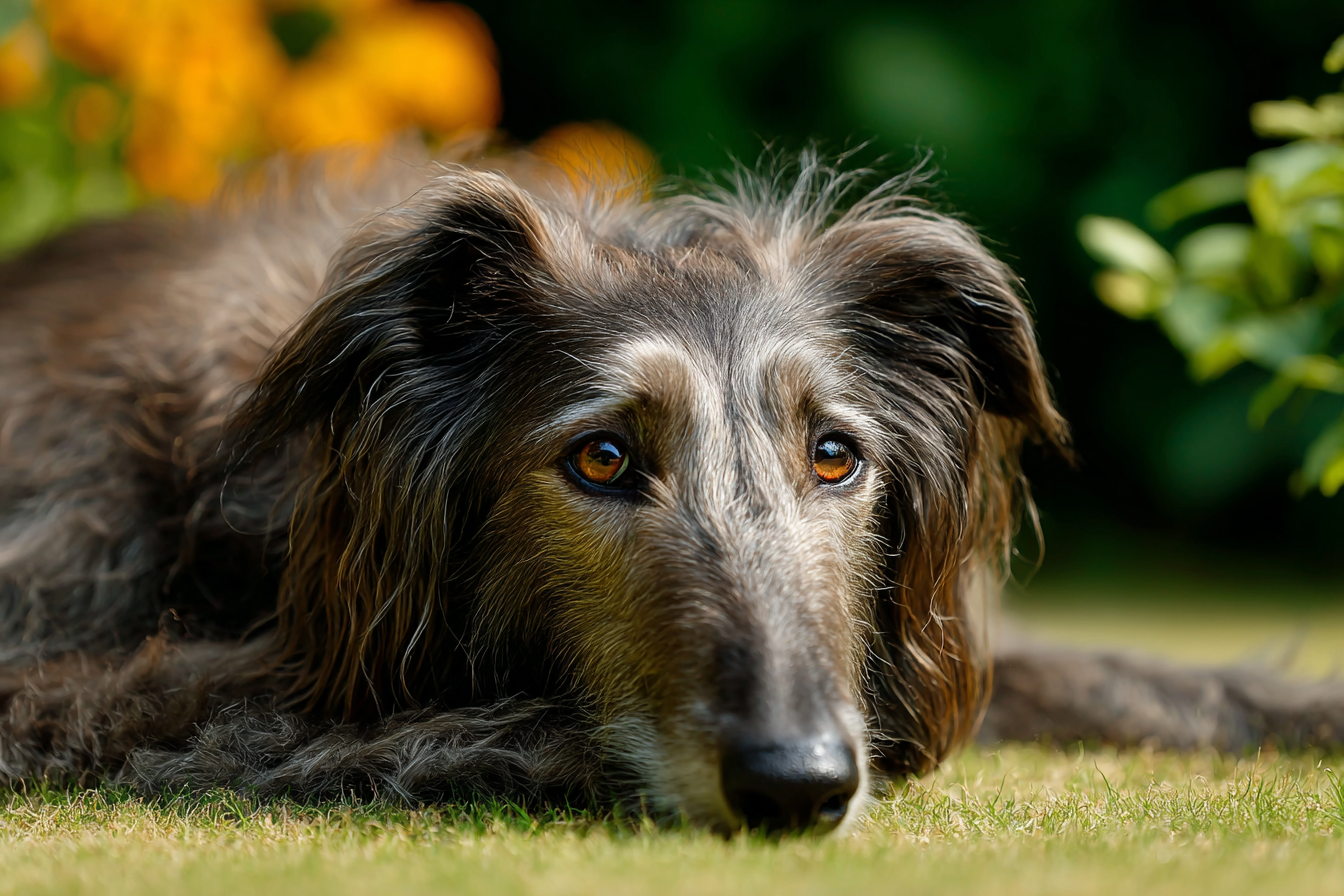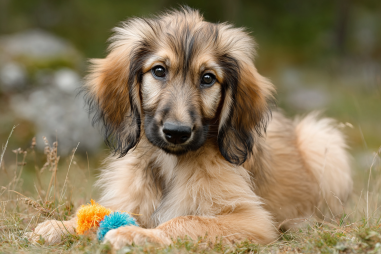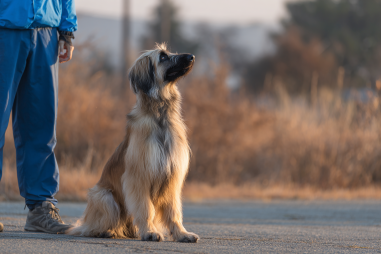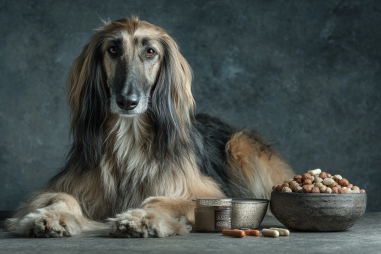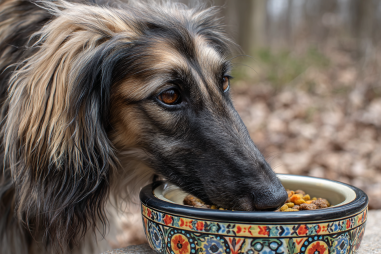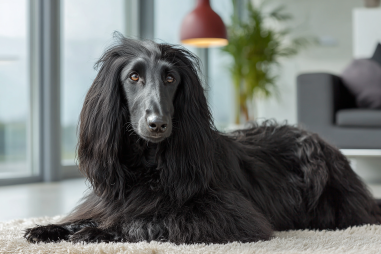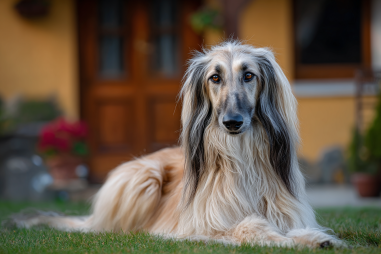Afghan Hounds are known for their elegant appearance and dignified demeanor, but their beauty is only one part of what makes them special. Like all dogs, Afghan Hounds go through various stages of life, and understanding their lifespan and needs as they age is essential for giving them the best care possible. Whether you have a young Afghan Hound or one who is entering their golden years, knowing what to expect can help you support their health, happiness, and comfort throughout their life journey.
Average Lifespan of Afghan Hounds
On average, Afghan Hounds live between 12 and 14 years. This lifespan is relatively long for a dog of their size and breed. Their longevity is influenced by genetics, health, diet, and lifestyle. Some Afghan Hounds can live even longer with excellent care and regular veterinary oversight. Early socialization, preventive health measures, and a commitment to good nutrition and exercise all contribute to their ability to age gracefully.
Signs of Aging to Watch For
As Afghan Hounds age, they will begin to display natural signs of aging just like any other breed. Being able to recognize these changes early can help you adjust their care accordingly. Common signs of aging include:
- Decreased energy levels: Older Afghan Hounds may not be as enthusiastic about long walks or playtime as they once were.
- Stiffness or limping: Joint pain and arthritis are common in senior dogs and can lead to reduced mobility.
- Changes in vision or hearing: Cataracts or other eye conditions and hearing loss can affect your dog’s behavior and confidence.
- Weight fluctuations: Both weight gain due to reduced activity or weight loss from health issues can occur.
- Changes in coat condition: Their beautiful coat may lose some of its luster and become thinner or greyer.
- Behavioral changes: Older dogs might become more withdrawn, anxious, or confused due to cognitive decline.
Adjusting Diet and Exercise with Age
Nutrition becomes a critical factor in your Afghan Hound’s health as they age. Senior dogs often require diets formulated to support joint health, maintain a healthy weight, and boost their immune system. Here are some dietary adjustments that are beneficial:
- Choose senior-specific dog food that is lower in calories but rich in protein, omega fatty acids, and antioxidants.
- Incorporate supplements such as glucosamine and chondroitin to support joint health.
- Monitor portion sizes closely to prevent obesity, which can exacerbate joint problems.
Exercise should also be modified to fit their changing energy and mobility. While Afghan Hounds are generally active dogs, their routine may need to shift towards shorter, gentler walks and low-impact activities. Swimming or gentle play can help maintain fitness without stressing aging joints.
Managing Age-Related Health Issues
Just like people, senior Afghan Hounds are prone to specific health concerns. Common age-related issues include:
- Arthritis and joint problems: These can cause pain and stiffness. Anti-inflammatory medications or joint supplements recommended by a vet can help manage symptoms.
- Dental disease: Older dogs are more prone to dental problems that can affect their overall health. Routine dental care, including professional cleanings, is important.
- Cognitive dysfunction syndrome: Similar to dementia in humans, it can cause confusion and behavior changes. Mental stimulation and certain medications can help.
- Heart, kidney, and liver conditions: These require ongoing medical management and regular vet check-ups.
- Eye issues: Cataracts and glaucoma are conditions to watch out for that can impair vision.
Close communication with your veterinarian will be essential to catch and manage these conditions early, helping to maintain your Afghan Hound’s quality of life.
Comfort and Quality of Life Improvements
Creating a comfortable environment for your senior Afghan Hound goes a long way in ensuring they enjoy their later years. Consider the following adjustments:
- Provide orthopedic bedding: Cushioned beds relieve pressure on aching joints.
- Use ramps or stairs: These can help your dog access favorite areas like beds or cars without jumping.
- Maintain a warm and draft-free space: Older dogs often get cold more easily.
- Grooming assistance: Afghan Hounds have long, flowing coats that can be hard to maintain, especially if they lose their grooming enthusiasm as they age. Regular grooming prevents matting and discomfort.
- Keep water and food bowls easily accessible: This helps minimize unnecessary strain when eating or drinking.
Regular Vet Checkups for Senior Dogs
Veterinary care is critical as your Afghan Hound ages. Regular checkups—at least twice a year—can help detect issues early. During these visits, your vet will likely recommend:
- Blood tests and urine analysis to monitor organ function.
- Dental exams and cleanings.
- Screening for common age-related diseases.
- Updating vaccinations as needed.
- Weight and mobility assessments.
These proactive health checks ensure that emerging problems are managed promptly, which can prolong your dog’s lifespan and improve daily comfort.
Tips for Mental Stimulation in Later Years
Keeping your Afghan Hound’s mind active is just as important as physical health. Cognitive decline can be slowed or mitigated with regular mental stimulation. Here are some ideas:
- Introduce puzzle toys that offer treats as rewards to challenge their thinking.
- Practice basic obedience commands or teach new tricks to keep their brain engaged.
- Spend time outdoors exploring new places to provide fresh sensory experiences.
- Engage in gentle play and interactive games to maintain social activity.
- Establish consistent daily routines to reduce anxiety and confusion.
A mentally stimulated dog is typically a happier dog, even in their senior years.
Supporting Your Afghan Hound’s Golden Years
Watching your Afghan Hound age is a bittersweet experience, but providing them with attentive care, love, and respect throughout their senior years is the best gift you can offer. By being mindful of their changing needs in terms of diet, exercise, medical care, and mental stimulation, you can help them maintain a good quality of life for as long as possible. Keep comfortable spaces prepared, stay observant for any signs of discomfort or distress, and remain in close communication with your veterinarian to address health concerns. With thoughtful care, your Afghan Hound can enjoy a long, happy, and dignified life by your side.

